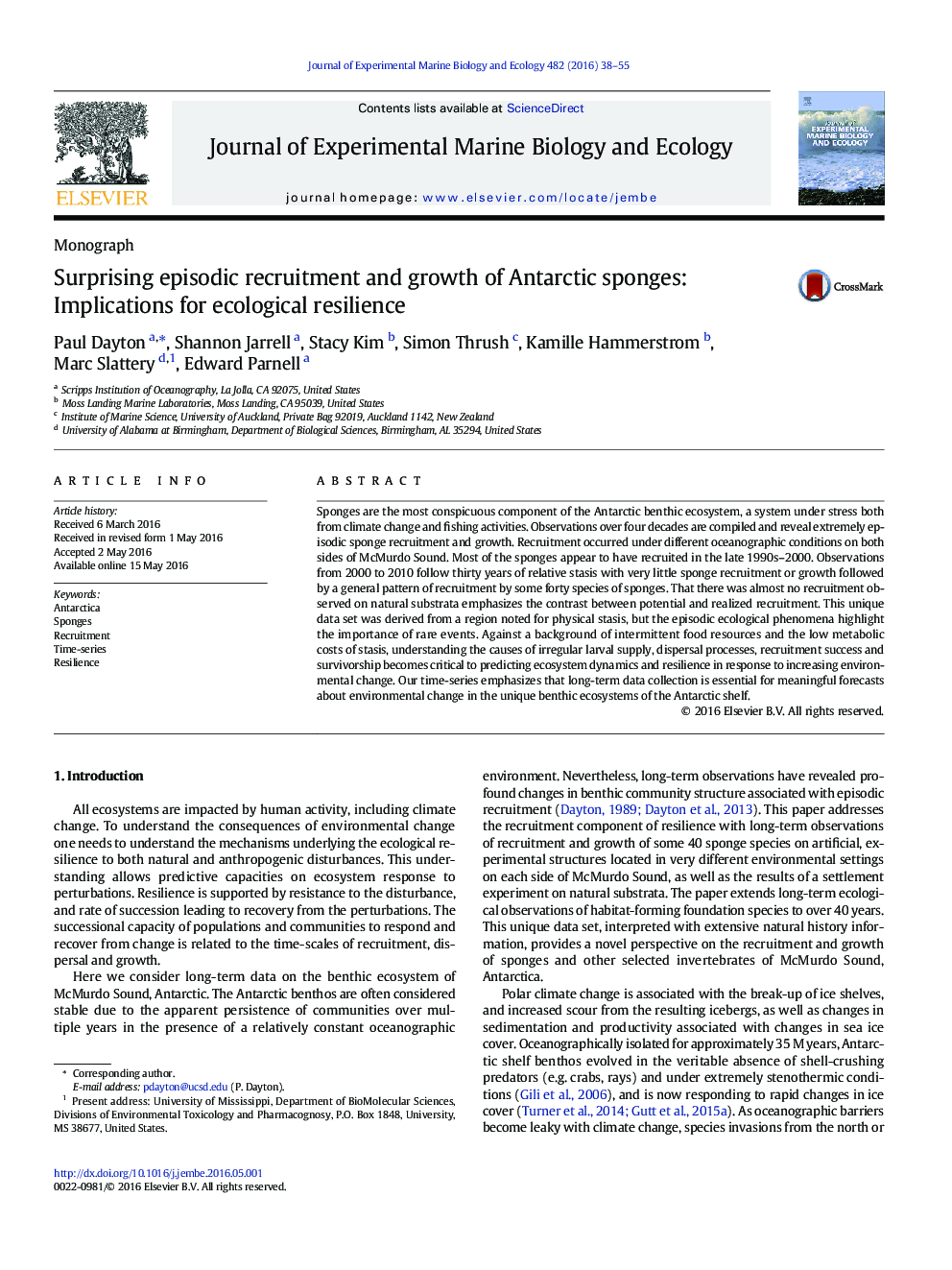| Article ID | Journal | Published Year | Pages | File Type |
|---|---|---|---|---|
| 4395235 | Journal of Experimental Marine Biology and Ecology | 2016 | 18 Pages |
•Data were compiled from sponge settlement on natural and artificial substrata.•Observations over 40 years show dramatic episodic recruitment of Antarctic sponges.•Potential recruitment is much higher than realized recruitment on natural substrata.•Climate induced ecological phase shifts suggest reduction of ecological resilience.•This study reveals the critical importance of longterm monitoring.
Sponges are the most conspicuous component of the Antarctic benthic ecosystem, a system under stress both from climate change and fishing activities. Observations over four decades are compiled and reveal extremely episodic sponge recruitment and growth. Recruitment occurred under different oceanographic conditions on both sides of McMurdo Sound. Most of the sponges appear to have recruited in the late 1990s–2000. Observations from 2000 to 2010 follow thirty years of relative stasis with very little sponge recruitment or growth followed by a general pattern of recruitment by some forty species of sponges. That there was almost no recruitment observed on natural substrata emphasizes the contrast between potential and realized recruitment. This unique data set was derived from a region noted for physical stasis, but the episodic ecological phenomena highlight the importance of rare events. Against a background of intermittent food resources and the low metabolic costs of stasis, understanding the causes of irregular larval supply, dispersal processes, recruitment success and survivorship becomes critical to predicting ecosystem dynamics and resilience in response to increasing environmental change. Our time-series emphasizes that long-term data collection is essential for meaningful forecasts about environmental change in the unique benthic ecosystems of the Antarctic shelf.
